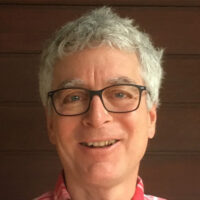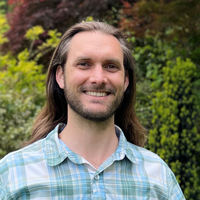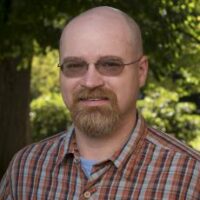Urban Tree Symposium
Beneath the Canopy: Roots, Soil, and City Life
Beneath the Canopy: Roots, Soil, and City Life
Friday, February 27, 2026 | 9AM–4PM
Location: New England Botanic Garden at Tower Hill
New England Botanic Garden’s annual Urban Tree Symposium is dedicated to exploring the importance of urban forests and ways we can improve our green spaces. Each symposium brings together experts in the fields of forestry, horticulture, biology, technology and more. You can expect to hear current and important information that will impact your work in our communities and your own home. The Urban Tree Symposium is geared towards current and aspiring professionals, students and tree enthusiasts.
This event is sponsored by Bartlett Tree Experts and co-hosted in partnership with the Ecological Landscape Alliance.
CEU’s are available.
Early bird registration begins mid-November and closes January 1, 2026. Check back often for the most up-to-date information regarding speakers and registration.
Early Bird Registration (through January 1, 2026):
$99 NEBG and ELA members
$120 Non-member
$60 Student
General Registration (beginning January 2, 2026):
$125 NEBG and ELA members
$150 Non-member
$65 Student
SCHEDULE
7:30–9:00 AM
Registration and Refreshments
9:00–9:15 AM
Welcome
9:15–10:15 AM

Keynote Address
What the Woods Tell Us About Pruning Trees
Dr. Edward F. Gilman
Professor Emeritus, Environmental Horticulture Department, University of Florida
What can unmanaged forests teach us about how to prune the trees in our cities and neighborhoods? Drawing on decades of research and field observation, Dr. Edward Gilman examines how trees naturally grow, adapt, and respond to structural stress—insights that directly inform pruning practices in built environments. This session explores branch architecture, loading forces, root and crown development, and the long-term effects of early structural training. Using real-world examples, Dr. Gilman illustrates why certain pruning choices succeed or fail and how practitioners can strengthen trees for improved stability, longevity, and resilience.
Following the lecture, Dr. Gilman will lead a Walk & Talk through the NEBG landscape, offering hands-on analysis of tree structure, pruning cuts, and site-specific challenges observed in real time. Participants will gain practical strategies for recognizing structural cues, evaluating risk, and applying research-based pruning techniques directly in the field.
Dr. Edward F. Gilman is one of the most influential figures in modern arboriculture, known internationally for his groundbreaking research on tree structure, pruning, production, and long-term urban performance. After earning his Ph.D. in forest plant pathology from Rutgers University, Dr. Gilman spent more than three decades on the faculty of the University of Florida, where he developed one of the nation’s most respected urban tree research and education programs.
His work has shaped best practices for municipalities, arborists, landscape architects, and nursery professionals across the globe. Dr. Gilman has authored more than 200 technical and scientific publications, six books, and numerous digital resources used widely in industry training. His research focuses on the effects of nursery production methods on tree quality, establishment rates, post-transplant water requirements, and structural pruning techniques that enhance stability and longevity.
Dr. Gilman’s contributions have been recognized with multiple national awards, including honors from the American Society for Horticultural Science, the Florida Nursery and Growers Association, the International Society of Arboriculture, and the American Horticultural Society. He has taught in seven countries and continues to advise professionals working to create healthier, more resilient urban forests. He lives in Gainesville, Florida, where he and his wife Betsy raised their two children.
10:30 AM–12:00 PM
Keynote Walk & Talk with Dr. Edward Gilman
12:00–1:00 PM
Lunch
1:00–2:00 PM

Fagus Forethought and Carpinus Conundrums
Dr. Matthew Borden
Plant Pathologist, Bartlett Tree Research Laboratories
Learn about several emerging tree diseases, how to recognize each by their signs and symptoms, and explore what is known of management approaches and their rationale.
Hear about the recent work by the research team at Bartlett Tree Research Laboratories in studying Beech Leaf Disease (BLD) and their failures and successes as they developed two novel treatment programs now widely in use. In addition, Dr. Borden will share exciting recent work done in an effort to uncover a new mysterious problem affecting European hornbeam.
Dr. Matthew Borden, DPM is a plant pathologist at the Bartlett Tree Research Laboratories in Charlotte, NC. Current work focuses on beech leaf disease, bacterial leaf scorch, and management of boxwood and other broadleaf evergreens. He has experience in orchard and botanical garden pest management, plant problem diagnostics, and writing for green industry magazines. Matt gained a deep appreciation for integrated pest management while at Virginia Tech, followed by studies in landscape health and sustainable management strategies at the University of Florida. Contact Matt at: mborden@bartlett.com.
2:00–3:00 PM

Preserving Threatened New England Urban Forests Utilizing Carbon Markets
John Whalen
Chief Information Officer, City Forest Credits Registry
City Forest Credits Registry, a non-profit based in Seattle, has catalyzed over 70 successful US carbon credit projects protecting threatened urban forests. Learn about a new initiative to bring these revenue-generating models to New England.
John Whalen is the Chief Information Officer of City Forest Credits (CFC), a national nonprofit carbon registry dedicated to generating high-quality, science-based carbon credits through urban and community forestry projects. In his role, Whalen oversees data infrastructure, analytics, modeling, and verification systems that ensure the credibility and transparency of carbon accounting within urban forest markets.
A leader at the intersection of technology, climate action, and urban ecology, Whalen works closely with municipalities, nonprofit organizations, and private partners to advance carbon finance as a tool for preserving, expanding, and stewarding urban forests. His work supports projects that not only sequester carbon but also deliver measurable co-benefits—improved air quality, heat mitigation, stormwater reduction, and enhanced community health.
Whalen’s expertise includes climate data systems, project certification, and the application of technological tools to support long-term urban forest monitoring and resilience planning. His session explores the growing role of carbon markets in protecting threatened urban forests throughout New England and beyond. Contact John at: john@cityforestcredits.org.
3:00–3:15 PM
Break
3:15–4:15 PM

Wood Banks & Urban Forestry: Exploring the Relationship
Dr. Richard W. Harper
In recent years, wood banks have arisen to provide free firewood to fuel-poor households as means of offsetting winter heating costs. Wood banks also offer several community-based benefits including the potential to derive utility from excess urban wood generated through routine arboricultural practices, like pruning and tree removals. Join Dr. Rick Harper (University of Massachusetts) as he outlines the existence of known wood banks and explore the potential for collaborations between municipal and private arboriculture / urban forestry operations.
Extension Professor of Urban & Community Forestry, University of Massachusetts, Amherst
Dr. Richard W. Harper is an Extension Professor of Urban & Community Forestry at the University of Massachusetts Amherst, where he leads a multifaceted program integrating research, outreach, and teaching on sustainable urban forestry. His work focuses on tree planting and establishment, soil health, invasive species management, and the development of resilient community forest systems.
A widely respected educator and collaborator, Dr. Harper partners with municipalities, conservation organizations, landscape professionals, and community groups to advance science-based approaches to caring for trees in built environments. His applied research and extension programs provide practical tools for improving canopy health, managing urban stressors, and engaging communities in long-term forest stewardship.
Dr. Harper also serves as a co-investigator with the Wood Bank Community Research Group, exploring how wood banks can reduce waste streams, promote energy justice, and create mutually beneficial partnerships between arborists, municipalities, and residents. His contributions to the field have made him a trusted resource for planners, practitioners, and policymakers working to sustain New England’s urban forests. Learn more about Rick.
4:15–4:30 PM
Closing Remarks & CEU Checkout
5:00 PM
Garden Closes



